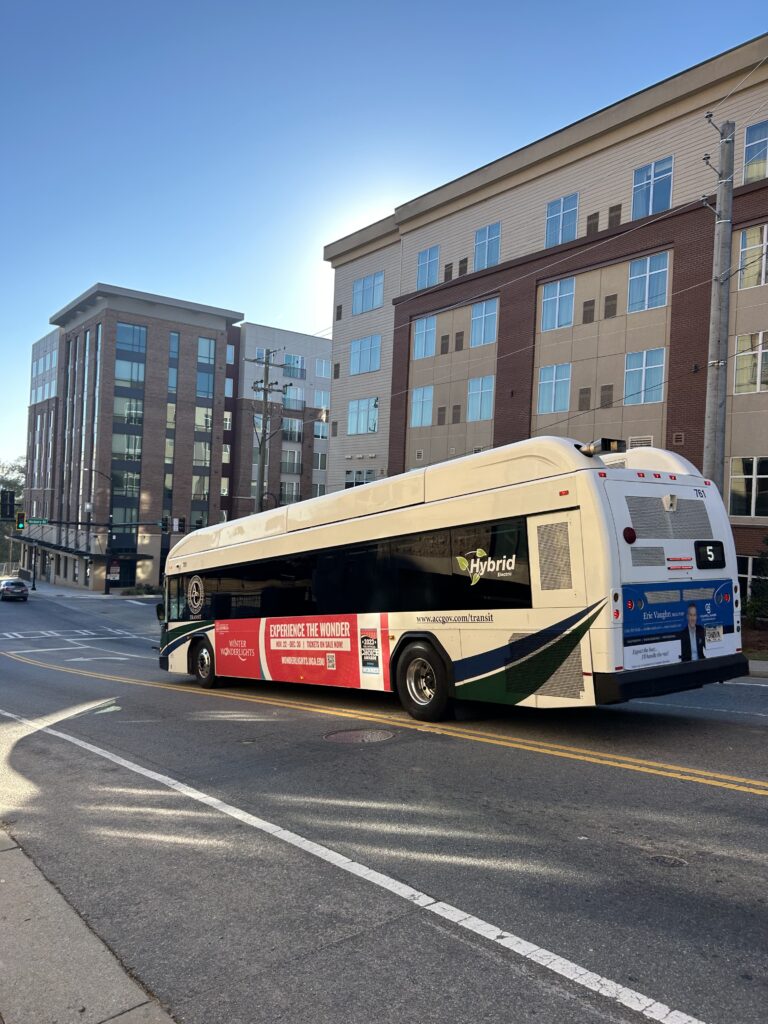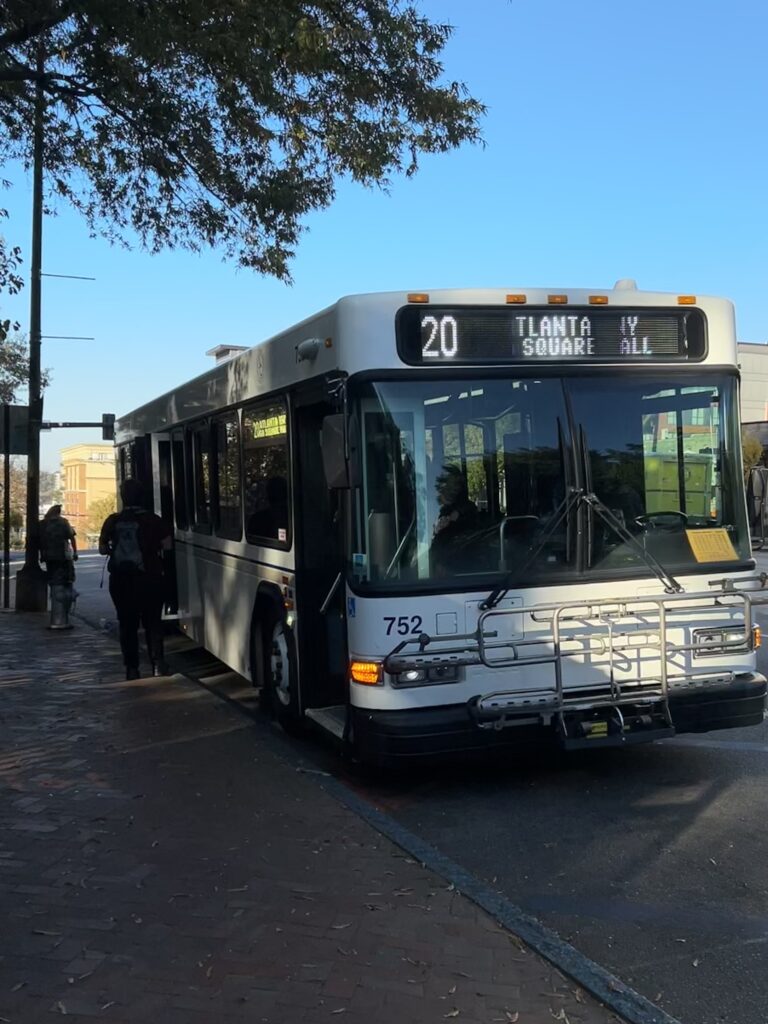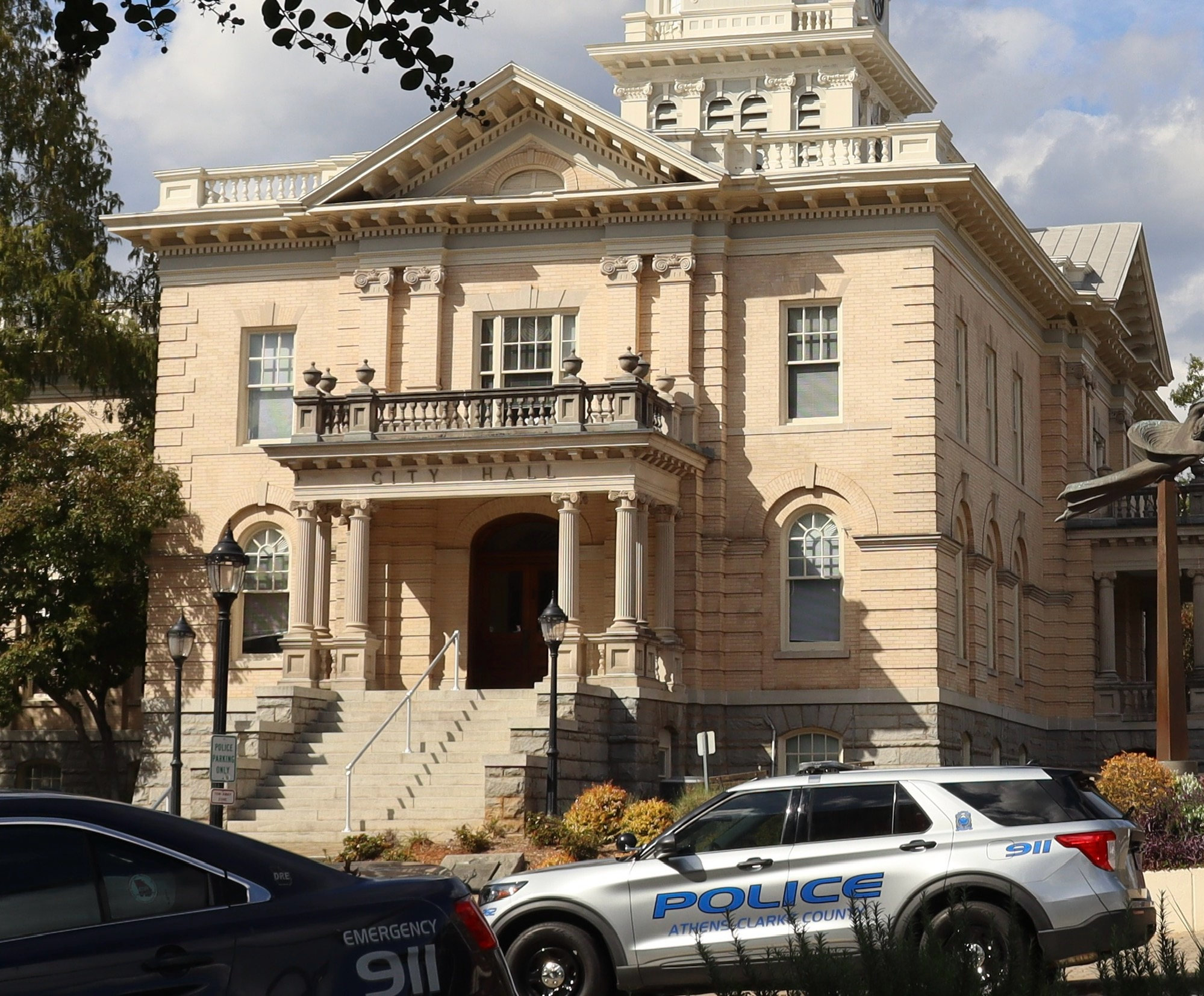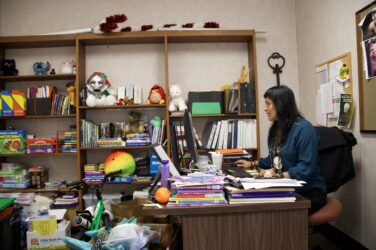The Athens-Clarke County’s mayor and commission adopted a resolution in 2019 to obtain 100% of the Unified Government’s energy needs for operations and building, from clean and renewable sources by 2035.
Four years later, the Sustainability Office looks to bolster sustainability in the local community with the Clean and Renewable Energy Campaign.
The campaign plans to achieve a transition to clean energy and reduce greenhouse gas emissions. Greenhouse gas emissions result in climate change that threaten the quality of life of Athens residents, especially those in traditionally marginalized communities, according to an executive summary of the plan.
The EPA claims climate change can create extreme weather conditions, and affect air and water quality. Extreme heat is the leading cause of weather related fatalities in the United States according to the National Weather Service.
Athens-Clarke County aims to reduce greenhouse gas emissions by transitioning to clean and renewable energy sources. Greenhouse gas emissions could lead to climate change effects that would impact the quality of life of Athens-Clarke County residents.Mike Wharton, sustainability officer for Athens-Clarke County, said the target year of 2035 requires constant work on sustainability projects.
“You have to be planning at the same time you are doing,” Wharton said.

The campaign requires projects across the Athens-Clarke County government. Wharton says these projects are focused through a three-pronged approach: energy, ecological resources and community.
Wharton says the Clean and Renewable Energy Campaign benefits from federal grants for sustainability projects, like the Georgia Environmental Finance Authority grant awarded to Athens-Clarke County in 2020.
“It’s a generational funding opportunity. But we don’t have a simultaneous generational receiving opportunity. Because we still have the same staff, we still have the same resources,” Wharton said.
Wharton mentioned staff capacity as a hurdle in implementing changes. The Athens-Clarke County Sustainability Office consists of three positions: a sustainability officer, an ecological resource coordinator and an energy coordinator, as well as a part-time support position. The office is currently trying to fill the support and energy coordinator positions.
The current staffing of two full-time positions at the Sustainability Office can make it challenging to plan, implement and coordinate funding to projects across the entirety of the Athens-Clarke County government.
Energy
Those planned projects include the installation of new solar panel arrays at municipal buildings. Several government buildings have already installed solar panels, like the transit Multi-Modal Center in downtown Athens, a transit center where residents can access multiple transit methods and bus routes. The campaign includes plans to construct solar arrays at several new locations.
Wharton says the Sustainability Office is planning to construct up to eight solar arrays at the Athens-Clarke County Library. He says the solar arrays could address 25-30% of the library’s energy needs. While this does not yet meet the 100% renewable energy goal, Wharton says these arrays can reduce greenhouse gas consumption.
“Reduction of greenhouse gasses is what’s going to change the climate change that is driving the bad things in the world right now environmentally,” Wharton said.
Wharton says nine arrays are planned to be built alongside a planned new mental health recovery facility. He says three arrays will be dedicated to battery storage, six will be dedicated to energy production to provide 75-85% of the facility’s energy needs.
Electrify the Fleet is a part of the Clean and Renewable Energy Campaign that aims to replace traditional fossil fuel-burning vehicles in the Athens-Clarke County fleet. The initiative would include replacing vehicles across multiple Athens-Clarke County government departments, along with buses.
Abbie Sawyer is the commercial recycling specialist at the Solid Waste Department. She says the department will receive a new electric forklift as part of the initiative.
“Eventually we would love to have electric recycling and garbage collection trucks,” Sawyer said.
She says the department does not have the budget yet to buy those large electric vehicles.
“It’s definitely a lot easier to start with, OK, well, we have a forklift that’s going out, and we’re gonna need to buy new and let’s do that,” Sawyer said.

Wharton says the electric vehicles cost more upfront than their gas-powered counterparts, but that it becomes a better investment over time. Athens-Clarke County uses TSPLOST funds to pay the difference between the cost of a gas-powered vehicle and an electric vehicle.
“By doing that, they get a vehicle at no additional cost,” Wharton said. “But they get one that obviously has a much lower lower maintenance costs much, much lower fuel cost, and will last them we think longer than a regular vehicle.”
The Clean and Renewable Energy Campaign requires cooperation throughout Athens-Clarke County departments to implement new sustainable projects. Sawyer says the Recycling Division is in contact with the Sustainability Office regularly.
Ecological Resources
The second prong of the Sustainability Office’s approach includes planning for the use of land and ecological resources in the area.
“Every community is built upon its natural resources,” Wharton said.
Wharton says natural systems provide many services to the community, like reducing light and noise pollution and stormwater remediation. He says these natural systems provide value to the surrounding area without having to develop on the land.
“What happens with our green infrastructure has an impact on our built infrastructure,” Wharton said.
Wharton says the Sustainability Office is currently working on a plan to restore a mile of riverfront to high quality habitat, and on improvements to Dudley Park. He says a lack of staff is slowing down progress on the Dudley Park and riverfront projects.
Community
Communication with the Athens-Clarke County community is another important piece of the campaign. A community advisory board consisting of local businesses, nonprofits and community organizations contributed to the clean energy planning process.
Wharton says the Sustainability Office is focused on reaching out to the community to aid in the Transition.
“We’re doing a community level, generation change,” Wharton said.
Wharton says the goal of 100% clean and renewable energy by 2035 is achievable, with the use of Renewable Energy Credits. RECs allow the purchase of renewable energy from producers from another region.
The purchase of RECs would mean the Athens-Clarke County government is not producing that renewable energy, but buying it from an outside source. Wharton says that he would prefer Athens-Clarke County produce its own renewable energy.
“I think it’s a way of tiding over, so it is at least driving the renewable market,” Wharton said.
After the 2035 goal of 100% clean and renewable energy for all municipal buildings, Athens-Clarke County has a goal of reducing the use of third party RECs to less than 40% of its energy portfolio by 2050.
Wharton says the Sustainability Office has enough resources to make a difference, but not everything they need.
“My experience, especially at the local government, is there’s always more that needs to be done,” Wharton said.
Jason Wier is a senior majoring in journalism at the University of Georgia.








Show Comments (2)
Energy
This blog provides a comprehensive overview of renewable energy sources, highlighting the potential for a sustainable future. Well-researched and informative!
Ilmu Komunikasi
How does the Clean and Renewable Energy Campaign aim to achieve Athens-Clarke County’s goal of 100% clean energy for municipal operations by 2035?